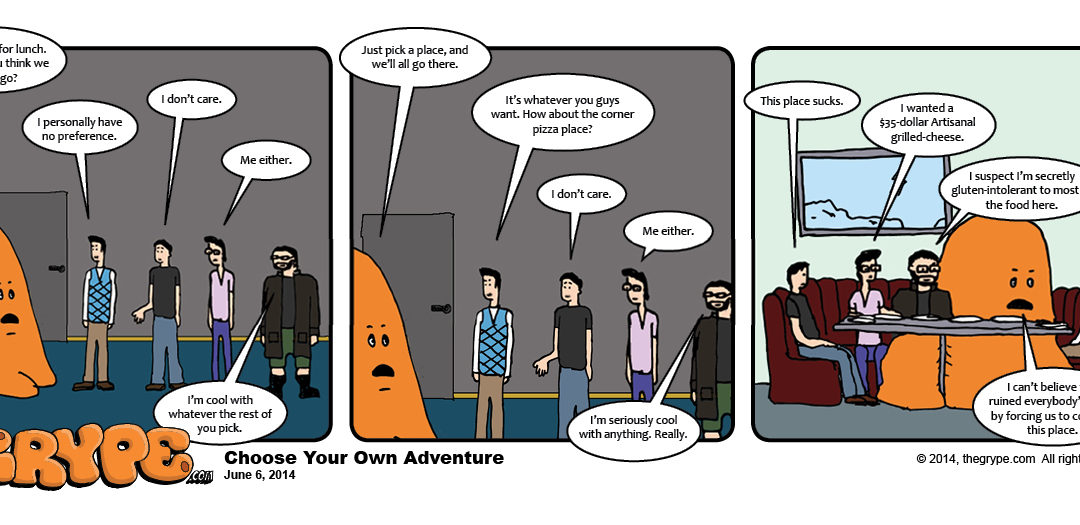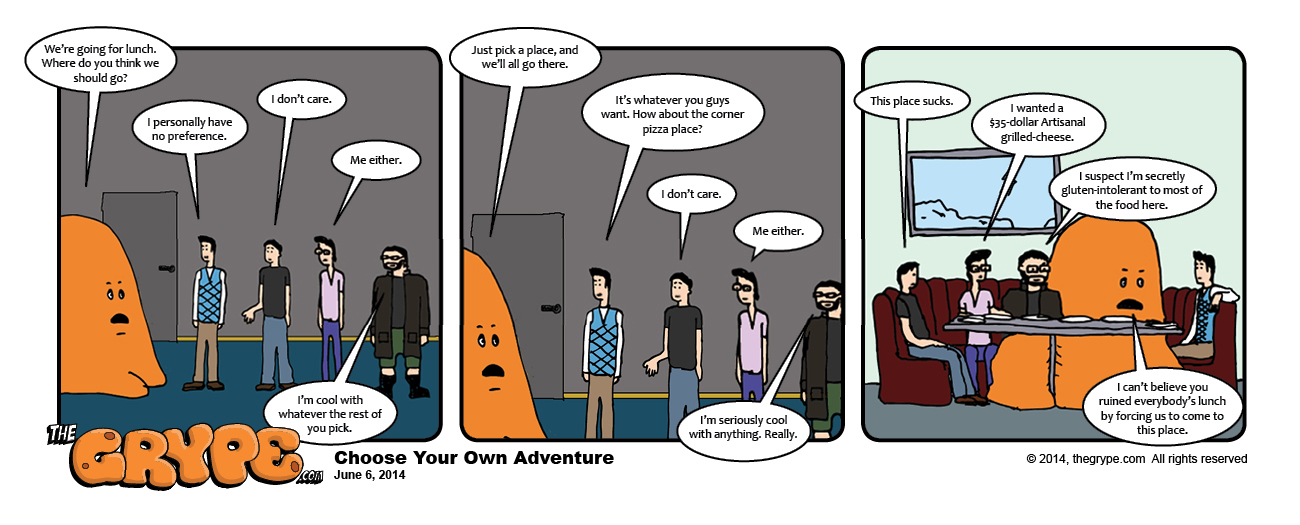There’s an interesting theory called Linguistic Determinism (sometimes referred to as the Sapir-Whorf Hypothesis) that suggests that language limits the way we think about things. Meaning that if a language doesn’t have the necessary words to define a concept, that concept can’t exist in a society that uses said language.
As a provable hypothesis it doesn’t hold much water, but it seems applicable on the individual scale: we are all subject to the limitations of our own vocabulary (and the blandishments of our personal vanity). Nowhere is this more obvious than in the metaphorical trenches of internet debate and discussion, which are often dominated by religious zealots, extreme political pundits (of various persuasions), and militant atheists— many of whom share the same quality in common: irrational close-mindedness, to the point where they are extremely offended by any suggestion that they should respect anyone else’s right to make their own decisions.
To those whose attitudes recoil from the extreme and dwell more to the middle, such refusal to examine all possibilities invariably causes friction. Especially when the majority of people on either side of the line automatically label anyone whose position leans even slightly in a different direction than their own as “crazed proponents of the dreaded other side,” which leaves little “middle” ground for anyone to occupy.
That’s always the problem with trying to turn rational discussion of real problems into a competitive debate with “winners” and “losers.” By doing so, you surrender any concept that you might discover a compromise whereby all involved can win. And by insisting that everyone involved be assigned to “teams”— you never finish picking those teams, so the real debate never really takes place. People get so busy proselytizing to impress their own teammates that they never address the actual issues at hand.
Of course, nothing of any import will ever be solved by arguing it at some online digital social destination anyway. It’s mostly just ranting for self-entertainment, and the entertainment of others.
But I find it personally disconcerting that such a high percentage of what people argue about, both on the internet and off, is actually untestable and unfalsifiable, and is therefore inarguable. I suspect it is a human failing that people are so adamant that others must share their opinions of things that cannot be tested or proven. As if lack of evidence can be overwhelmed by sheer argumentative word volume.
I think it’s ridiculous for anyone to expect me to utilize my time debating a particular issue with them when, for whatever reason, they come with a closed mind intent only on rephrasing the same opinions over and over, due to either an unwillingness or inability to back up their statements with any evidentiary material not rooted in their own predisposed, intractable point of view. Such interactions become mere exercises in endurance, and only test the participants ability and willingness to rephrase the same theories over and over again, as if mindless repetition somehow lends them further credence.
Plus, any observable phenomenon can be inflated into a large enough theoretical sphere that it eventually results in an unprovable, unmeasurable, unanswerable conundrum. Then the scope of the question goes off the upper scale from what can be objectively known into the thin, rarified air of what can only be theorized and subjectively believed. At which time all possibilities are equal in provable probability, and the entire matter becomes one of subjective faith.
There are some matters that are ultimately so subjective they are incontestable. You can only agree on them, or— if you can’t, or don’t— the attempt winds up an empty exercise of screaming mouths and plugged ears. Many of the most vehement arguers on the internet show up with empty sacks of hot air where their evidence should be… or else they can’t extricate their arguments from insulting ad hominem references to people and things with which they disagree long enough to consider what is actually being said.
Back in the 16th century there was a German sect of Anabaptists (forerunners to the Amish) who were SO EXTREME that they affected an absolute disdain for all human knowledge, contending that “God will enlighten his elect from within themselves,” granting them special knowledge of necessary truths by “visions” and “ecstasies,” with which any other type of human learning would interfere.
They rejected all other means of instruction, and claimed that to be worthy of heaven one “must even be ignorant of the first letters of the alphabet.” So THAT became the name of their sect: the “A-B-C-darians,” otherwise known as the “Abecedarians.” They also considered any study of theology or religion to be a species of idolatry, denouncing any learned or educated men who did any preaching or lecturing as a “falsifier of God’s word.”
Don’t look now, but there seems to be a whole NEW species of Abecedarian roaming the comment sections and message boards of the Internet. Except they don’t get their visions and ecstasies from divine trances— they get them from watching Fox News and MSNBC.


